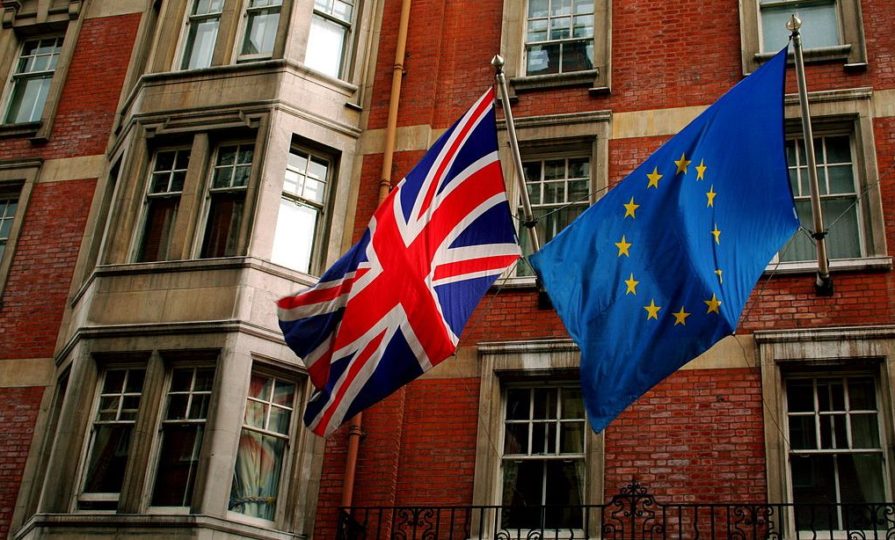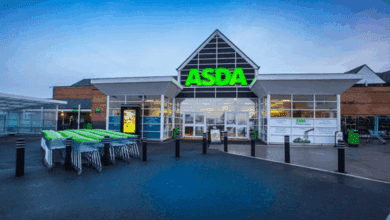What will a no-deal Brexit mean for retail?

Register to get 1 free article
Reveal the article below by registering for our email newsletter.
Want unlimited access? View Plans
Already have an account? Sign in
We’re now just one month away until Britain leaves the European Union and we appear no closer to knowing whether we’ll be departing with a deal or without one. One sector which is set to bear the brunt if we leave without a deal is retail. In a report by Retail Economics, a third of retailers have admitted that they’re not ready for this prospect.
In addition, they said they had done little to no preparation. All the retailers surveyed said a no-deal would be “damaging to their trade” while a further one in three said the prospect would ‘incur significant extra costs’.
These costs could come from two main avenues: labour and tariffs. According to the CBI, the retail sector employs 170,000 EU workers. That means one in 15 of its workforce are from the EU. There is a particular reliance on those who work in logistics and warehousing, as well as food and drink.
While the government has committed to retaining a level of free movement in the event of a no-deal, it will only be temporarily. The ‘European Temporary Leave to Remain’ allows new EU citizens to enjoy the same rights to study, work and live in the UK as they would do now. But there is nothing guaranteeing their rights beyond 2020, and long term, there is nothing guaranteeing their ability to be able to stay in the UK. For example, they could be stripped of their opportunity to apply for citizenship at any time.
For those who are currently here, they will be able to stay under the EU Settlement Scheme. But employers will be expected to carry out checks on their successful applications, which is likely to be a timely and costly exercise.
When the EU Settlement Scheme lapses at the end of 2020, the £30,000 earnings threshold that accompanies the Tier 2 Visa system is due to be extended from non-EU citizens to EU citizens. That will mean those working in retail will have to earn at least that amount in order to be able to come to the UK. Such a system will have a damaging impact on many companies in the retail sector who rely on lower-paid EU individuals to carry out essential work. The average wage of a store assistant for example is £6.90.
That would be nowhere near enough to meet the salary threshold. Not only this, but as part of the process of hiring someone, employers will be expected to make a Sponsor Licence application, hiking up costs and increasing their workload further. As part of that process, they will be required to prove their legitimacy as a business and outline why they need the use of migrant labour.
They will also be required to execute a Residency Labour Market Test, which will show the UK Visa and Immigration Department why that role cannot be filled within the UK.
Again, such a process is costly and increases workloads further, and is particularly bad when many retailers rely on having easy flexible labour. They may need them to work on projects abroad or help set-up a new store. Around certain times of the year, such as Christmas, a lot of retailers will require extra staff. In some areas, there are also skills shortages which EU staff help to fill. This includes data scientists and software engineers. Not having such an easy access to labour will make the hiring process a lot more difficult.
The other way in which costs will rise in the event of a no-deal Brexit is through tariffs. Being able to trade with the EU is important for the UK. In 2017, more than forty percent of all UK exports were to the EU, while more than fifty percent of all imports came from the EU.
Not being able to get these products exchanged freely will be problematic. Tariffs, for example, could be applied, leaving retailers with a huge cost. Research has found it could be as much as £8bn. According to Retail Economics, meat and dairy products could be hit with an 80% tariff, while chocolate could see a 30% tariff.
This could cost those businesses an extra £6bn. And, instead of these products simply being waved through as they are currently allowed to be – in the event of a no-deal, that process will only continue temporarily.
The French government has also said it plans to carry out sanitary and customs checks on products being exported from the EU. That process could mean stops and checks which would add further costs to the supply chain.
To minimise disruption, the UK could then decide to make tariffs as low as possible. Under World Trade Organisation rules, this could mean reverting to something called the Most Favoured nation status. This is where one country grants special privileges to another country, such as low tariffs, but under this status, that must be extended to all countries.
If the UK chose to have zero tariffs with the EU for example, it would have to extend that to all other countries it did trade deals with. Having such a policy with so many different countries could damage the retail sector by flooding the country with imports. So, either way, tariffs or no tariffs, a no-deal Brexit will be disastrous.
Not only will retailers, their supply chains and staff suffer, but so will consumers who will almost certainly see prices rise as a result. Several supermarkets, including Sainsbury’s, Asda and M&S have warned that they would have to pass on any increase in their costs to their customers. Meanwhile, they also warn there could be goods shortages.
It’s clear a no-deal Brexit would hamper the retail industry. Trade and labour would particularly suffer. Goods may end up being subject to stops and checks, while consumers may see prices rise in the shops as a result of increased costs to the supply chain.
Jack Gevertz is a writer for the Immigration Advice Service; an organisation of UK immigration solicitors which provides legal support for those looking to migrate to the UK or hire overseas workers.







